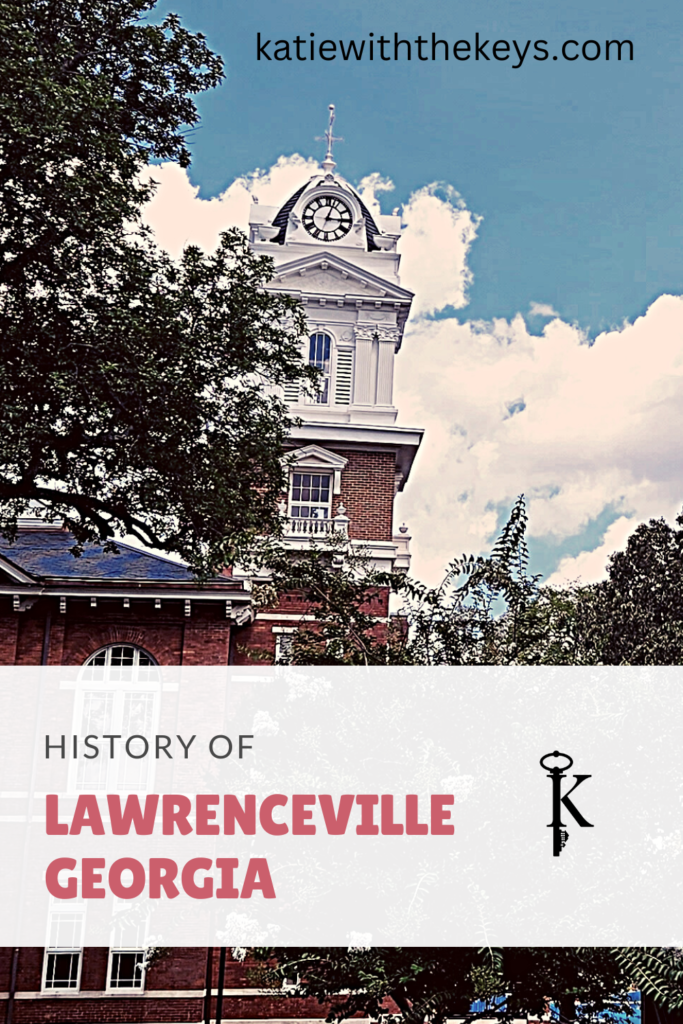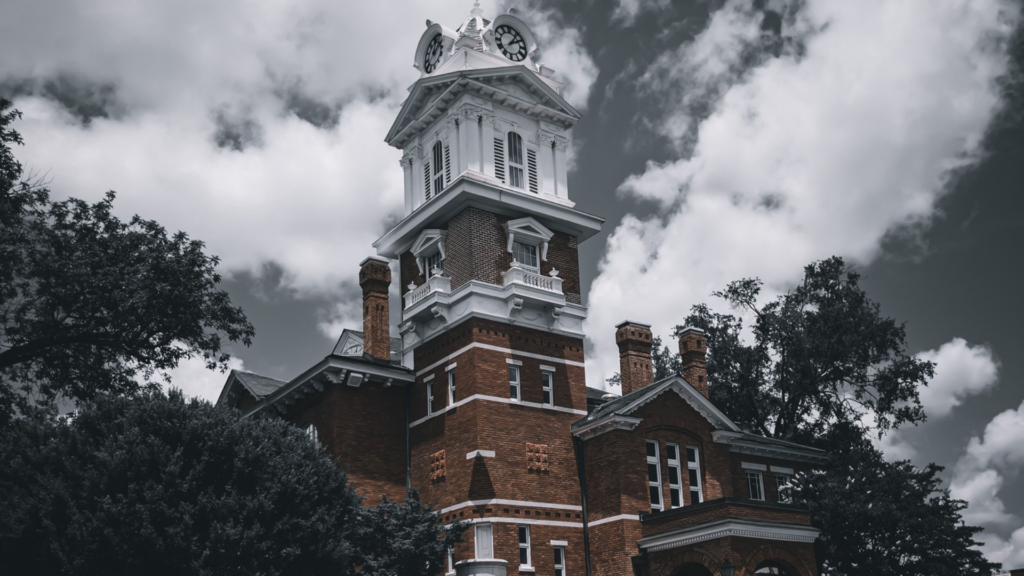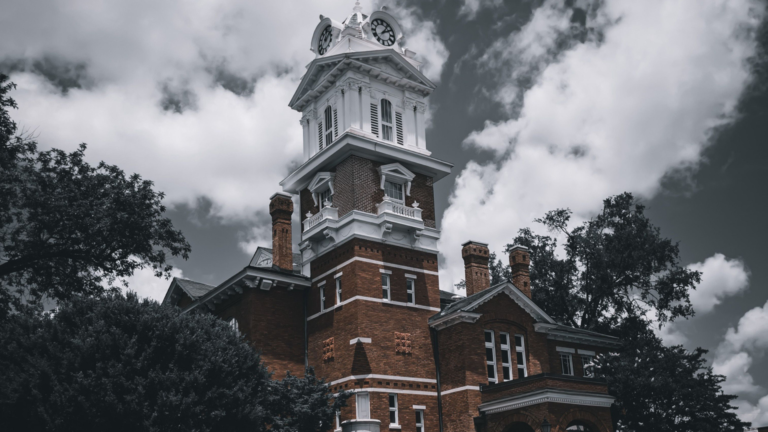
Table of Contents
History of Lawrenceville Georgia
Unveiling the Tapestry of Lawrenceville’s Rich History
Nestled in the heart of Gwinnett County, Lawrenceville, Georgia, is a city that boasts a captivating history spanning centuries. From its humble beginnings to its current status as a vibrant and thriving community, Lawrenceville’s rich history is a tapestry woven with threads of resilience, innovation, and growth. In this comprehensive exploration, we delve into the annals of Lawrenceville’s past, tracing the evolution of this charming city from its earliest days to its modern identity.
Let’s take a look at some of the History of Lawrenceville Georgia
1. The Native American Legacy:
Long before European settlers arrived, the land that would become Lawrenceville was inhabited by the Cherokee Nation. The area’s lush forests, rolling hills, and fertile lands provided the Cherokee people with the resources they needed to flourish. As European exploration expanded in the 18th century, conflicts between settlers and indigenous communities began to reshape the region’s landscape.
2. Founding and Early Years:
The story of Lawrenceville’s founding dates back to 1821 when it was established as the county seat of Gwinnett County. The city was named in honor of Commodore James Lawrence, a naval hero of the War of 1812. Lawrenceville quickly became a hub for commerce and trade due to its strategic location along important transportation routes, including the Lawrenceville Highway and the Georgia Railroad.
3. The Antebellum Period:
The antebellum era brought both prosperity and challenges to Lawrenceville. The city’s economy thrived, driven by cotton production and the labor of enslaved individuals. As tensions escalated between the North and South, Lawrenceville, like many Southern towns, became a focal point for discussions on states’ rights and the institution of slavery.
4. Civil War and Reconstruction:
Lawrenceville’s history is intimately tied to the American Civil War. The city’s residents, like those across the South, experienced the devastating impact of the conflict. The Battle of Lawrenceville in 1864 marked a significant episode during General Sherman’s March to the Sea. In the aftermath of the war, Lawrenceville faced the challenges of reconstruction and the rebuilding of its shattered infrastructure.
5. Evolution and Modernization:
The late 19th century witnessed Lawrenceville’s transformation into a modern city. The arrival of the railroad further facilitated trade and brought new opportunities for growth. The city’s architecture began to reflect a blend of historical styles, from Victorian and Queen Anne to Neoclassical, leaving an indelible mark on Lawrenceville’s streetscape.
6. Lawrenceville Today:
Fast forward to the present day, and Lawrenceville has evolved into a thriving community that honors its past while embracing the future. The city’s historic downtown district remains a focal point, featuring charming boutiques, local eateries, and cultural attractions. Annual events, such as the Lawrenceville Ghost Tours and the Rock’n Ribville festival, pay homage to the city’s history and provide entertainment for residents and visitors alike.
7. Preserving the Legacy:
Efforts to preserve Lawrenceville’s historical heritage are evident throughout the city. The Gwinnett Historic Courthouse stands as a symbol of the past, offering guided tours and educational programs that transport visitors back in time. The Lawrenceville Female Seminary, founded in 1836, has been lovingly restored and now serves as a reminder of the city’s commitment to education and progress.
The History of Lawrenceville Georgia is a captivating journey through time, showcasing the city’s resilience, adaptability, and enduring spirit.
From its Native American roots and the challenges of the Civil War to its vibrant modern identity, Lawrenceville’s story is one of evolution and transformation.
By cherishing its past and embracing its future, Lawrenceville continues to thrive as a vibrant community with a rich and storied history.
Whether you’re a history enthusiast, a curious traveler, or a proud resident, the History of Lawrenceville Georgia has something profound to offer to all who explore its remarkable narrative.
Benefits of Living in Lawrenceville:
Community Atmosphere: Lawrenceville is renowned for its strong sense of community. Neighbors greet each other with smiles, and local events and festivals foster a warm and welcoming environment, making it an ideal place for families and individuals seeking close-knit connections.
Quality Education: The city is home to excellent schools that provide quality education and a nurturing environment for children. Gwinnett County Public Schools, one of the largest and most respected school districts in Georgia, serves the educational needs of Lawrenceville’s residents.
Cultural Enrichment: Lawrenceville’s commitment to preserving its history is evident in its cultural institutions, museums, and historic sites. Residents have the opportunity to engage with their heritage and explore a range of cultural experiences right in their backyard.
Recreational Amenities: Parks, sports facilities, and recreational centers abound, catering to outdoor enthusiasts, sports lovers, and those seeking an active lifestyle. Tribble Mill Park and Rhodes Jordan Park are just a couple of the many options available for relaxation and recreation.
Thriving Economy: The city’s strategic location and well-connected transportation networks contribute to a thriving local economy. Lawrenceville’s business-friendly environment encourages entrepreneurship and economic growth.
Exploring the Historic Downtown Square:
The heart of Lawrenceville beats strongest in its downtown square, where history and modernity blend seamlessly to create a unique and vibrant atmosphere. The square is surrounded by a collection of well-preserved historic buildings, each with its own story to tell:
Gwinnett Historic Courthouse: A towering icon of Lawrenceville’s past, the Gwinnett Historic Courthouse is a stunning Neoclassical structure that has stood since the mid-19th century. It has witnessed significant historical events and now houses a museum that showcases the city’s heritage.
Lawrenceville Female Seminary: Founded in 1836, this beautifully restored building was once an influential center of education for young women. Today, it stands as a testament to Lawrenceville’s commitment to education and serves as a reminder of the city’s progress.
Lawrenceville City Hall: A blend of Romanesque and Victorian architectural styles, the Lawrenceville City Hall is a captivating sight. Its clock tower adds a touch of elegance to the downtown skyline.
Masonic Lodge Building: This historic structure has been a gathering place for fraternal organizations for over a century. Its distinctive architecture and historical significance make it a noteworthy landmark.
Local Boutiques and Eateries: The downtown square is not only home to historic buildings but also a variety of local boutiques, art galleries, and restaurants. Exploring these charming establishments allows residents and visitors to support local businesses while immersing themselves in the city’s culture.
Living in Lawrenceville, Georgia, offers a plethora of advantages, from a strong sense of community and quality education to cultural enrichment and recreational opportunities. The heart of Lawrenceville beats passionately within its downtown square, where historic buildings stand as timeless witnesses to the city’s evolution. Exploring these architectural gems is a journey through time, allowing residents and visitors to connect with the past while embracing the present. As Lawrenceville continues to thrive and grow, its downtown square remains a testament to the enduring charm and character that define this remarkable city.
To read more History of Lawrenceville Georgia, visit Lawrencevillega.gov.








